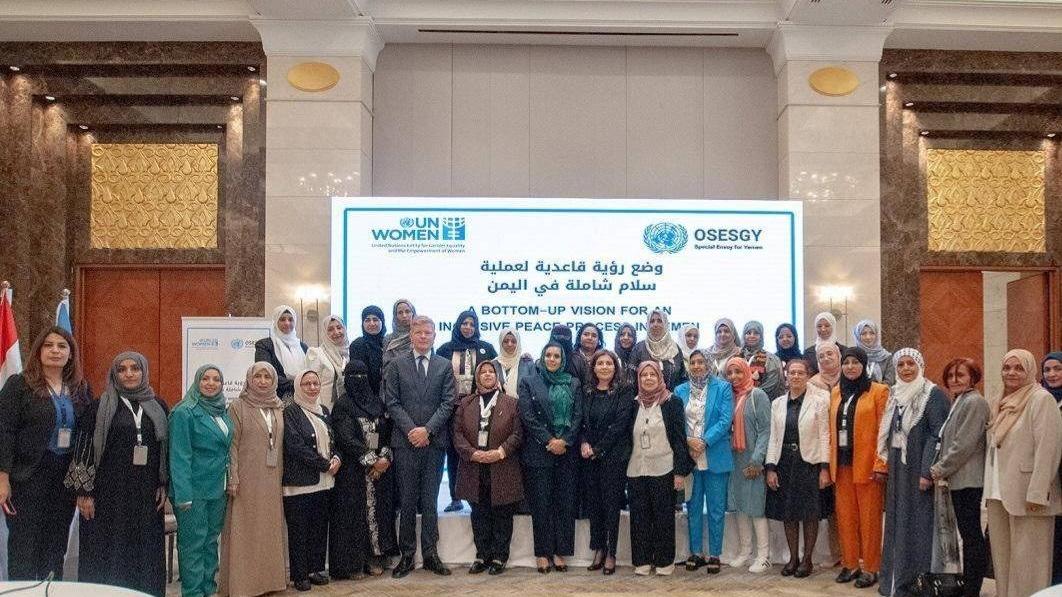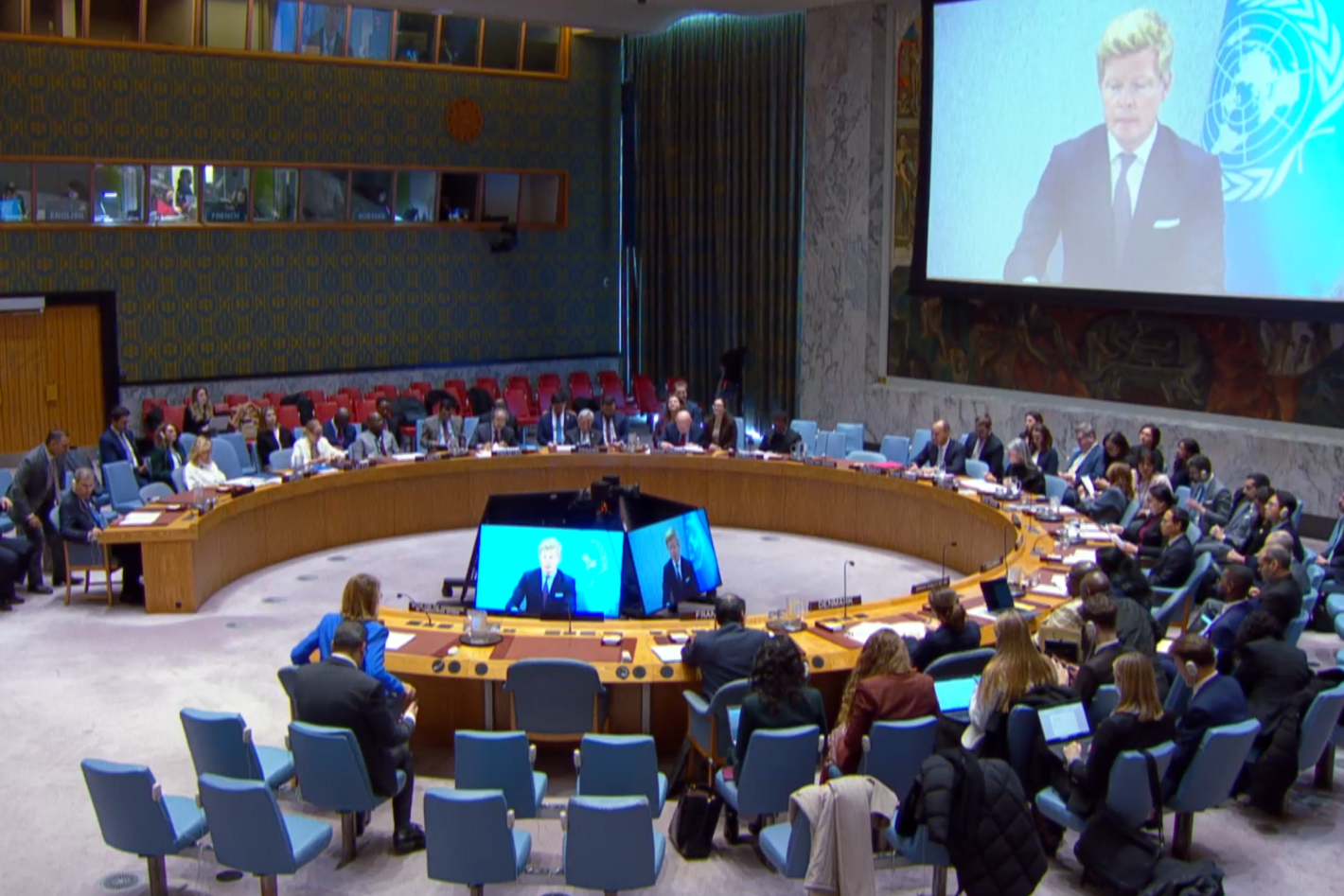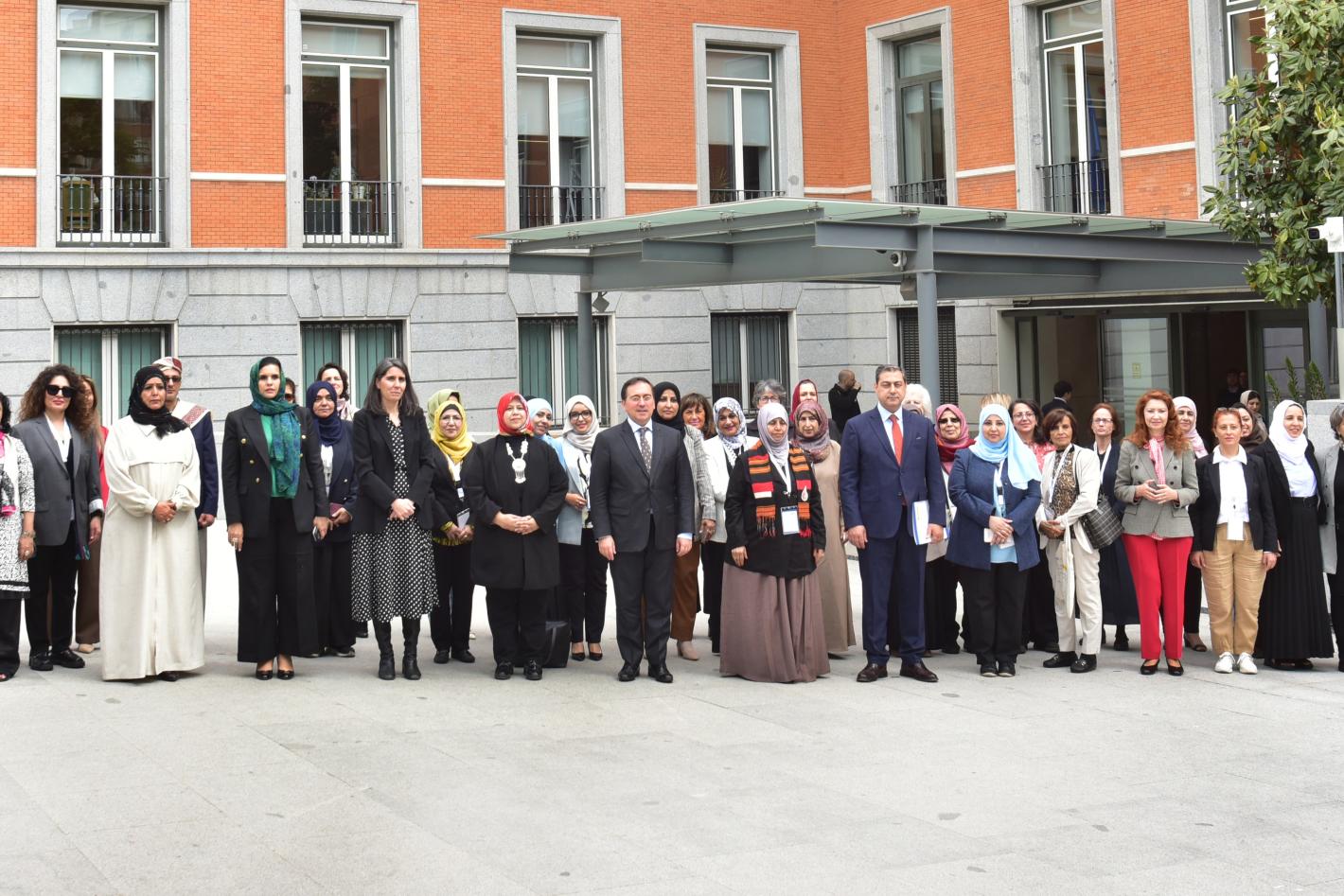The Office of the UN Special Envoy for Yemen (OSESGY) and UN Women convened a consultation meeting with 33 Yemeni women activists, experts, academics, and political and civil society actors in Amman between 19 and 21 November. The consultation is the first in a series that aim to reach a diverse group of women representatives, in addition to other outreach activities planned by OSESGY to formulate a participatory Yemeni vision for an inclusive peace process.
"To achieve just and sustainable peace, it is imperative that all segments of society, and particularly underrepresented groups such as women and youth, have a meaningful voice in shaping Yemen's political future,” said Hans Grundberg, the UN Special Envoy for Yemen. “War spares no one, and so, peace should exclude no one.”
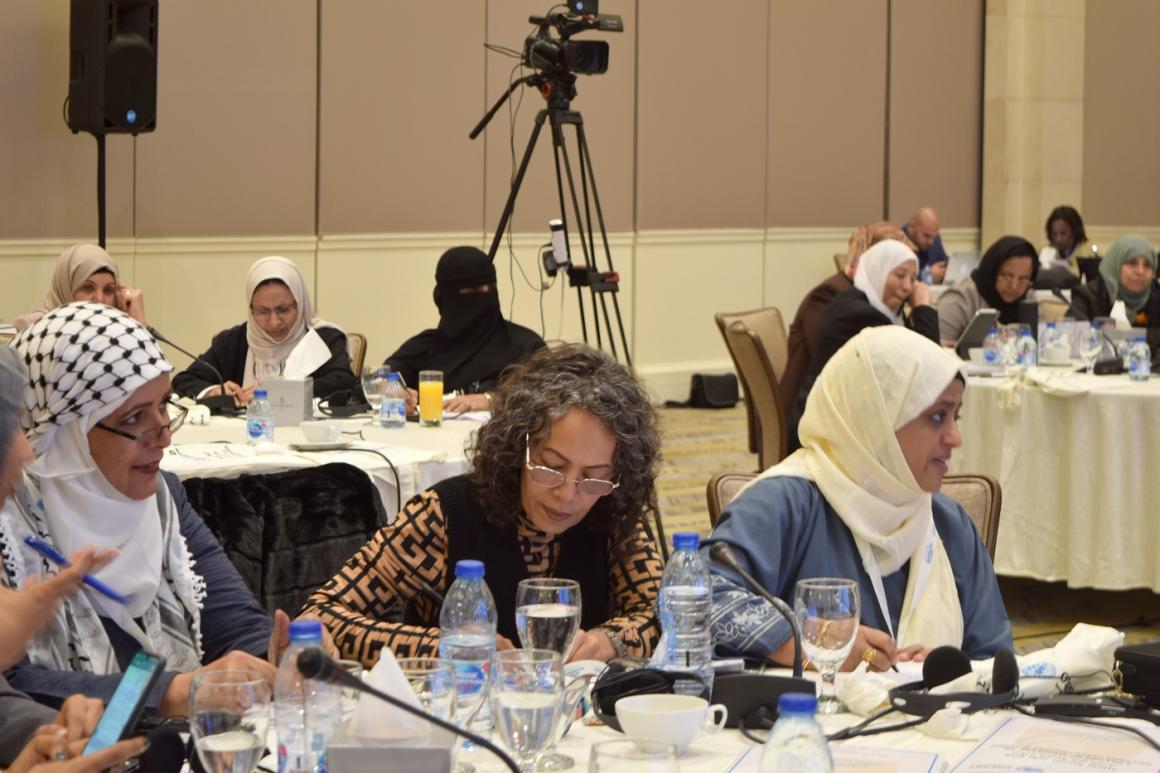
(Participants engaged in discussions)
The participants exchanged views about ways to ensure the inclusivity of the political process and stressed the need for a platform under UN auspices that allows all Yemenis to contest and debate issues that are central to their future. Several participants highlighted that women are not only champions for perceived “women issues”. Instead, they came with diverse agendas and positions on critical issues including the file of detainees and abductees, the question of the south, economic development, transitional justice, rehabilitating state institutions, press freedoms, equal citizenship, and the rule of law.
“Women carry the issues of all Yemenis. We are the pillars of the society and what kept it together during the war. We have sacrificed and survived and endured. Having a seat at the table is our right, not a privilege,” said Muna Luqman, one of the participants.
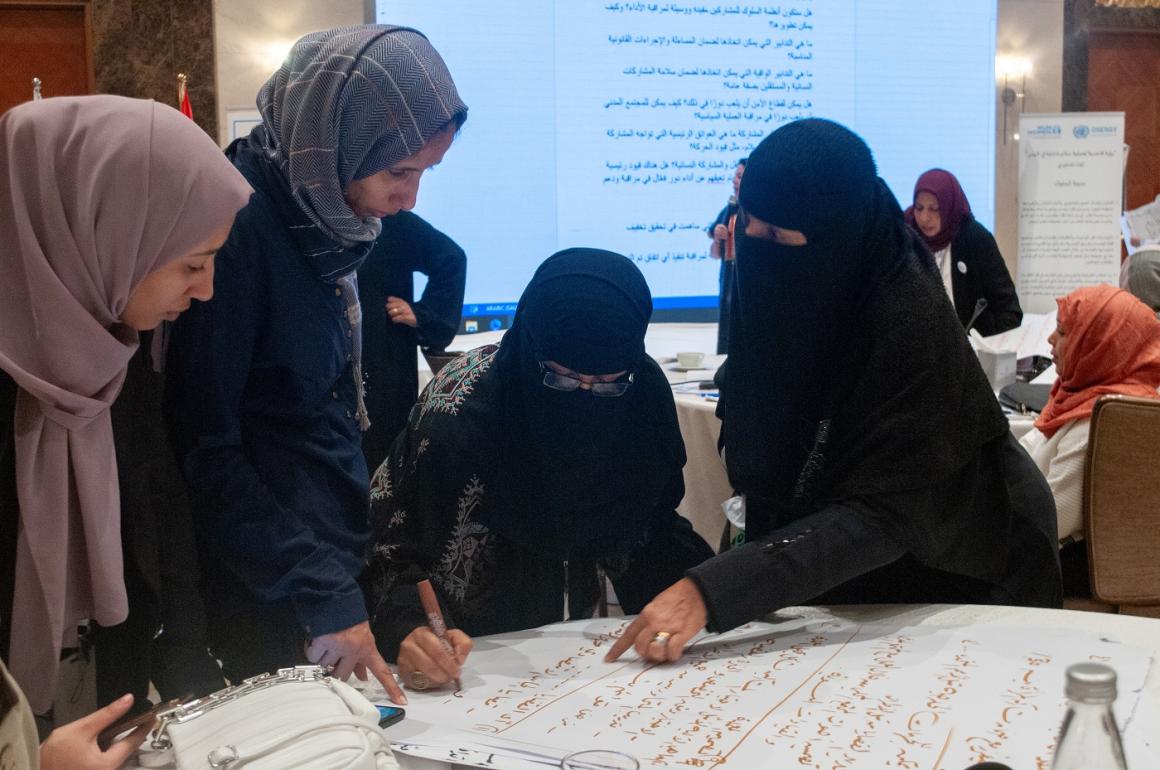
The participants discussed key principles to guide the anticipated political process and short- and long-term priorities on the peace agenda. In this context, they stressed that immediate needs must be met including a nationwide ceasefire, payment of public sector salaries, and opening roads. They also exchanged views on potential viable confidence building measures including handing over mines’ maps to facilitate demining, the unconditional release of all conflict-related detainees and abductees and refraining from any further arbitrary detention of civilians, the return of internally displaced persons, and easing restrictions on airports and ports across the country.
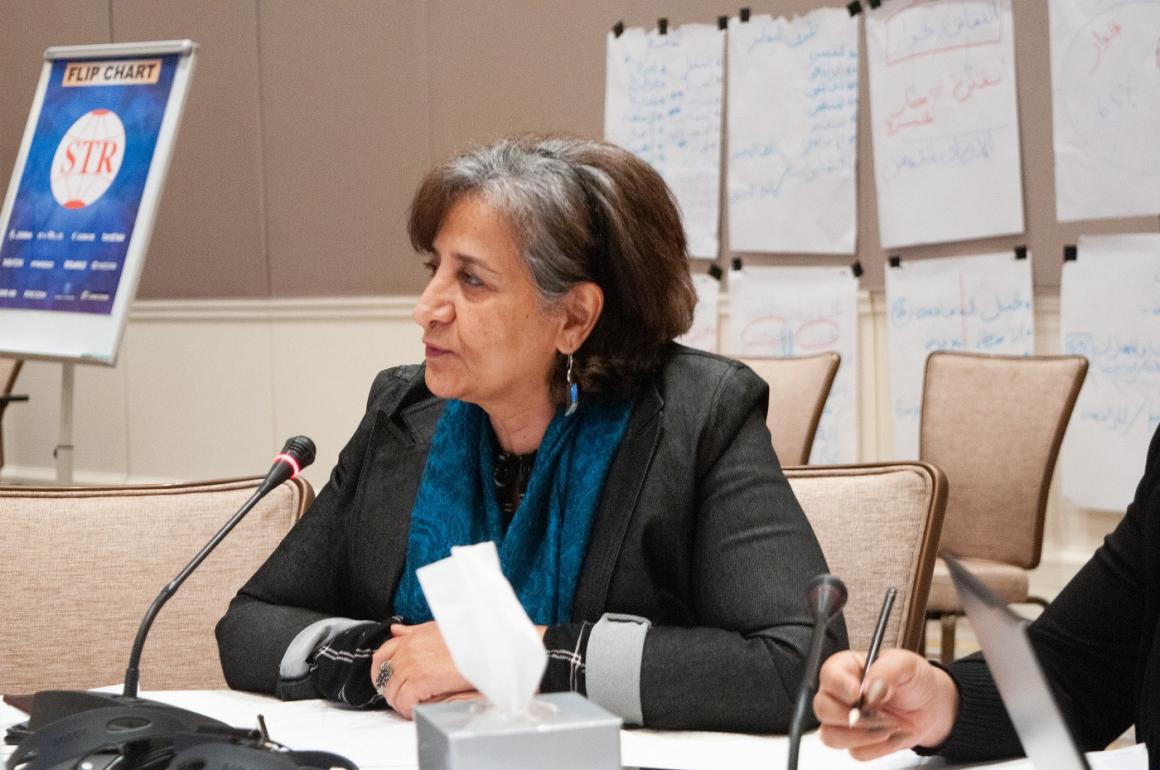
Consensus emerged around the need to start discussions about long-term priorities as soon as possible in an inclusive platform with UN facilitation. Issues like the shape of the state, accountable governance, transitional justice and reconciliation, and disarmament and reintegration of fighters, the participants argued, need to be on the agenda now if there is any hope for sustainable resolution.
All participants also agreed on the need for the inclusion of women, civil society organizations, and youth to ensure the fairness and sustainability of peace efforts. To that end, they recommended immediate measures to facilitate their meaningful participation beginning with enabling individuals’ freedom of movement inside Yemen, capacity building, international advocacy for the inclusion of different segments of the Yemeni society, and easing restrictions on the rights of expression, assembly, and association.
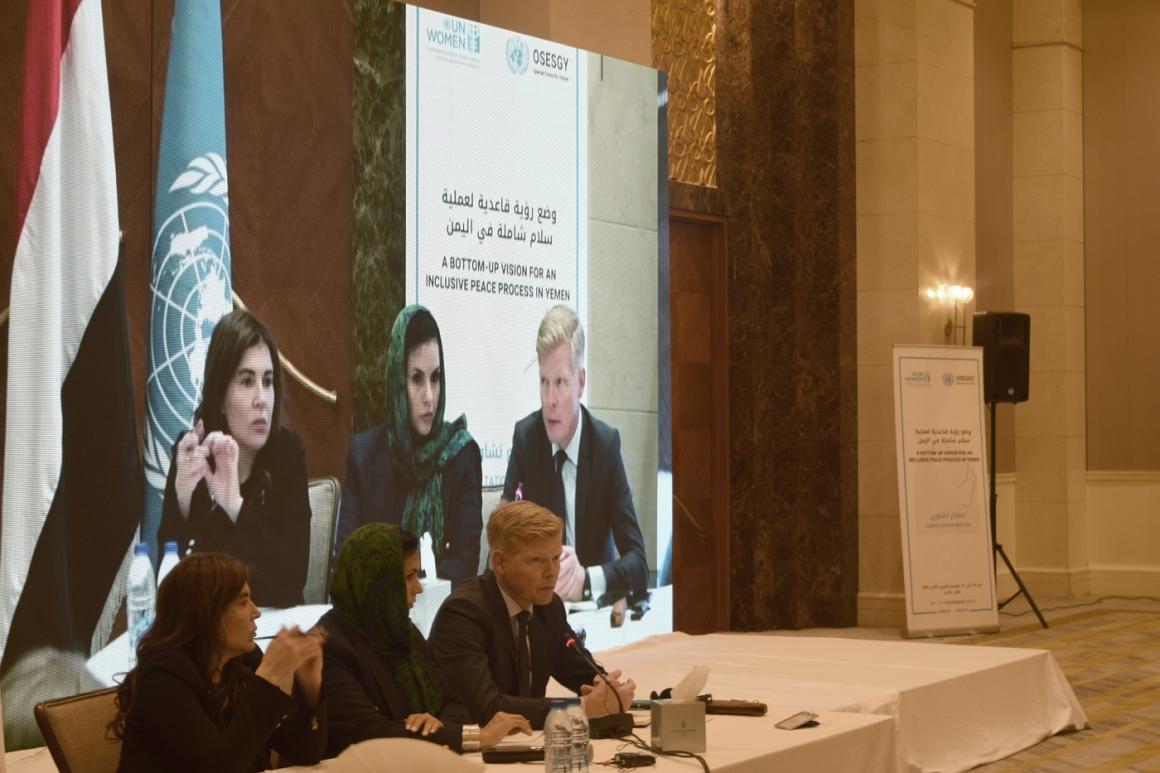
(From left to right: Dina Zorba, UN Women’s Representative for Yemen, Zahra’ Langhi, Senior Advisor to the Special Envoy, Hans Grundberg, UN Special Envoy for Yemen)
Representatives of OSESGY and UN Women led discussions to solicit inputs from the participants on how to improve the United Nations’ inclusivity work and efforts.
“Let us remember that the journey towards peace, although challenging, is a valuable endeavor. We should embrace the opportunity to learn from one another and from our shared experiences, working collaboratively. Most importantly, we must recognize the profound impact of the transformative power of peace,” said Dina Zorba, UN Women’s Representative for Yemen, “We need to consider the previous efforts, acknowledge the achievements made, and gain insights from setbacks.”


